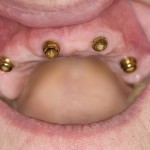
The worlds elderly population is growing rapidly and despite improvements in oral health and tooth retention the need for complex oral restorative and rehabilitation is anticipated to rise. One consequence is likely to be increased demand for dental implants based restorative treatment in older patients.
The aim of this review was to evaluate the outcome of dental implant therapy in the elderly population aged 65years or over.
Methods
Searches were conducted in the Pubmed, Embase, Cochrane CENTRAL and Web of Science databases supplemented by other online sources (Google, Yahoo, and Researchgate). Prospective studies reporting on regular-diameter (≥3 mm), micro-rough surface implants in adults over 65yrs were considered. Studies published in English, French and German were included. Two reviewers independently selected studies, abstracted data and assess risk of bias. The Cochrane tool and Newcastle-Ottawa scales were used to assess risk of bias. The primary outcome measure was implant survival rate.
Results
- 11 studies ( 2 RCTs, 1 Cohort, 1 case-control, 1 prospective comparative, 6 prospective case-series) were included.
- The authors considered that all the included studies should be considered as prospective case series.
- A random-effects meta-analysis was performed on the post-loading implant survival rates at 1, 3, 5, and 10 years.
| No. of Studies | Implant survival (95%CI) | PI-MBL | |
| 1-year | 11 | 97.7% (95%CI; 95.8 – 98.8) | 0.1 -0.3 mm |
| 3-year | 6 | 96.3% (95%CI; 92.8 -98.1) | NR |
| 5-year | 7 | 96.2% (95%CI; 93.0 – 97.9) | 0.7mm |
| 10-year | 3 | 91.2% (95%CI; 83.4 -95.6) | 1.5 mm |
- Information regarding technical and biological complications in the included studies was inadequate for statistical analysis.
- Frequently reported technical/mechanical complications were abutment screw loosening, fracture of the overdenture prostheses, activation of retentive clips, ceramic chipping, and fractures.
- The common biological complication reported included peri-implant mucositis, mucosal enlargement, bone loss, pain, and implant loss.
Conclusions
The authors concluded:-
This systematic review provides robust evidence favouring dental implant therapy in elderly edentulous patients as a predictable long-term treatment option in terms of high implant survival rates, clinically acceptable PI-MBL changes, and minimal complications. Therefore, age alone need not be considered a factor in effectuating dental implant therapy, and implants should be a recommended treatment option in the rehabilitation of elderly edentulous patients in order to help improve their oral function and quality of life.
Comments
This systematic review has adopted standard methodological approaches identifying a small number of prospective studies addressing the topic. The meta-analysis provides survival rates for implant in patients over the age of 65 at 1,3 5 and 10 years of, 97.7%, 96.3%, 96.2%, and 91.2% respectively. The authors have also conducted a sensitivity analysis where they consider all those implant lost to follow up as failed which reduces the survival rates to 95.6%, 91.7%, 91.2%, and 80.5% respectively.
While the authors consider the included studies to be of ‘superior quality conducted by well-known and senior researchers’ although no formal assessment of quality of the studies has been conducted and all of the included studies are small with the number of patients included in them ranging from 10 to 31. As a consequence the findings of the review should be interpreted cautiously as providing evidence to suggest favourable outcomes in elderly patients rather than robust evidence and indicated in the authors’ conclusions.
Links
Primary paper
Srinivasan M, Meyer S, Mombelli A, Müller F. Dental implants in the elderly population: a systematic review and meta-analysis. Clin Oral Implants Res. 2016 Jun 7. doi: 10.1111/clr.12898. [Epub ahead of print] Review. PubMed PMID: 27273468.

Dental implant treatment in patients over 65- had good results https://t.co/o9neWNAEux
[…] 0 0 0 http://www.nationalelfservice.net/dentistry/restorative-dentistry/dental-implant-treatment-elderly-p… […]
Dental implant treatment in elderly patients https://t.co/o9neWNj35X
Dental implant treatment in elderly patients predictable suggests review https://t.co/o9neWNAEux
Dental implant treatment in elderly patients https://t.co/m9k0pZtQl7 vía @sharethis & @alonsocarrasco
Dental implants in elderly edentulous patients a predictable long-term treatment option? https://t.co/o9neWNAEux
Review suggests the dental implant treatments in elderly is predictable https://t.co/o9neWNAEux
Don’t miss- Dental implant treatment in elderly patients https://t.co/o9neWNj35X
Taking care of people’s teeth is an ongoing job. These days, elder dental care has come a long way and dental implants are certainly an option. It is always best to work closely with your dentist to find the best options.
My concern is based upon the levels of oral hygiene I witness during my many visits to care homes. Currently there are poor levels of oral hygiene even after staff have been trained, and that’s with ordinary teeth let alone complex prosthetics.
Oral heath education in care homes is an challenging issue . You might like to take a look at a recent blog of a Cochrane review on this. https://t.co/cvlNXWThOX